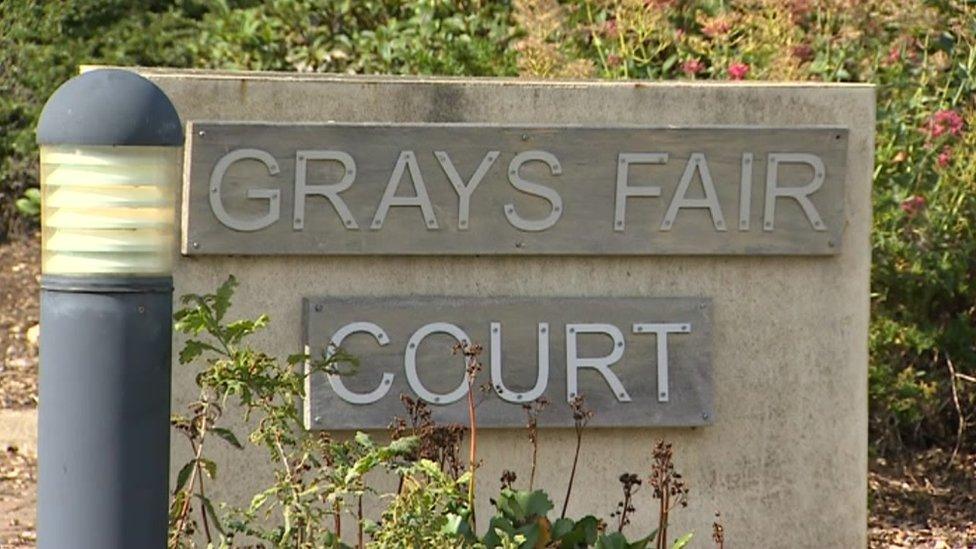Man strangled wife 'after suicide pact failed'
- Published

Doreen Virgo was found at Grays Fair Court care home near Norwich
A man with dementia strangled his wife after a suicide pact using rat poison went wrong, a court heard.
Michael Virgo, 81, of, Buxton, Norfolk, allegedly killed his wife Doreen, 89, on 12 July at a care home, in New Costessey, near Norwich.
The couple had agreed to "die together" but after the poison failed, Mr Virgo hit his wife over the head before strangling her, a trial of facts heard.
Mr Virgo had been charged with murder but was found unfit for trial.
Prosecutor Peter Gair said it was an "unusual and very sad case".
Mrs Virgo was found with a pillow over her face during a routine check around 19:30 BST by staff at Grays Fair Court care home.
She had blue stains around her mouth and blue residue was seen on a mug and plastic beaker in her room, Ipswich Crown Court heard.
'I killed her'
Mr Virgo was found by police in his car in Norwich later the same night.
He also had blue stains around his mouth and was taken to hospital where he told doctors: "My wife was taken ill, she was getting worse and worse, so I killed her" and "I didn't want to live without her".
The prosecution said there was "no evidence of a struggle" and it was possible Mrs Virgo had been "compliant".
Mrs Virgo, who had multiple sclerosis and was bed-bound, had previously told care home staff that her husband was the "only reason I am still here".
In a letter to his cousin following his arrest, Mr Virgo said: "Doreen and I had a wonderful, loving life and I am very sad to say that Doreen became so very unwell, we decided together to end our lives."
He said it was his "duty to assist her in her death" and "I miss Doreen more than anything in life and can't wait until we are together again". He also told a psychiatrist that his wife had been "pleading" for him to kill her.
Mrs Virgo's cause of death was recorded as strangulation.
The hearing continues.

What is a trial of the facts?
If a court determines that a person is unfit to stand trial, then criminal proceedings cannot proceed.
Prosecutors, however, have the option to have the matter heard as a "trial of the facts" in a public hearing to determine whether an accused committed the acts alleged.
It cannot result in a conviction, but if the court is not satisfied that the accused committed the acts alleged, then they will be acquitted.
The jury is not required to return a verdict of guilty or not guilty. Instead, they are asked to decide whether or not the accused committed the offence with which they were charged.
A number of different medical orders are available to the judge in the place of sentencing, as set out by legislation. These are mainly designed to protect the public.